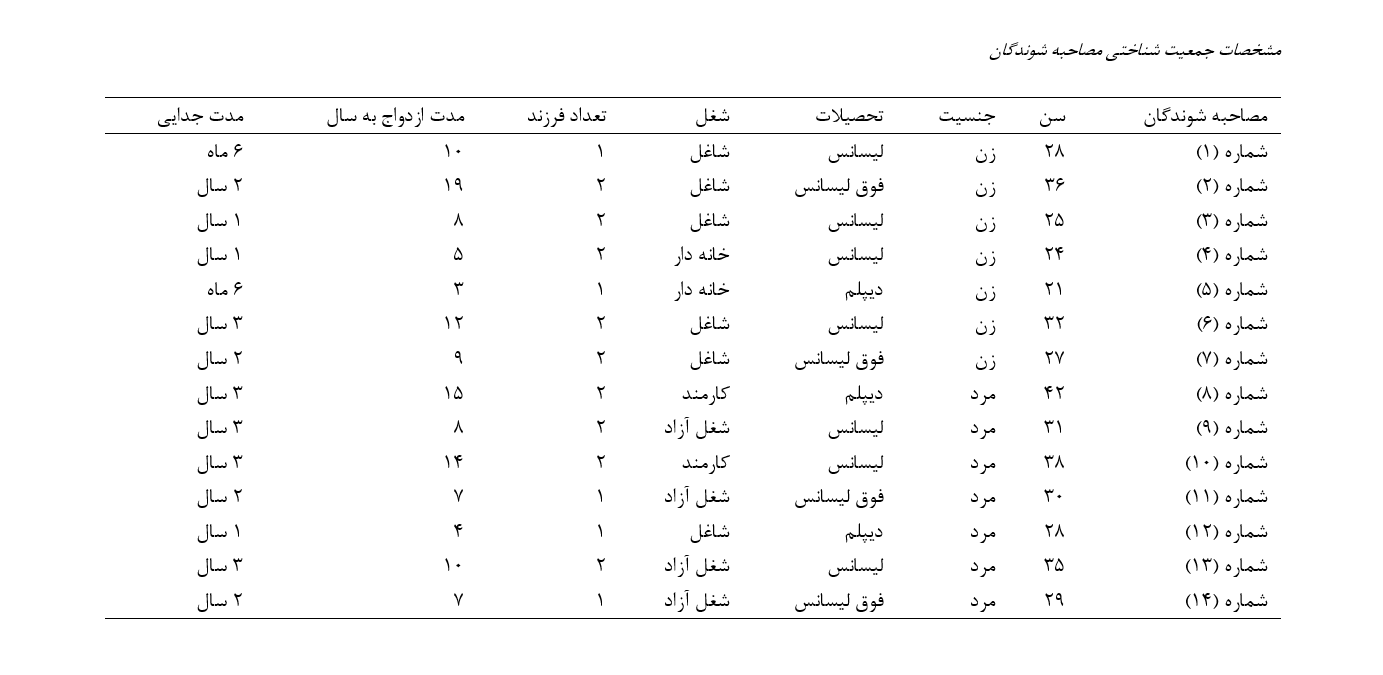Phenomenological Analysis of Divorce Socialization
Keywords:
divorce, qualitative method, grand theory, socialization, familyAbstract
The present study aims to conduct a phenomenological analysis of divorce socialization in the southern region of Fars Province. This study was conducted using a qualitative approach and a phenomenological method. Data were collected through semi-structured interviews. A total of 14 divorced men and women were selected as the sample using purposive sampling. Data analysis was performed through coding. The findings of this study revealed that, in the open coding stage, conceptual labels were assigned to raw data, and those with shared characteristics were categorized under the same concept. In the axial coding stage, the categories derived from open coding were grouped into broader categories, which included: marriage as a lifelong commitment, shattered assumptions, rebuilding life and adapting to divorce, family and friends’ support, increased control and reduced independence, social insecurity, homogamy in social interactions, social exclusion, job insecurity, family as a source of acceptance for divorce, emotional discharge, connection with spirituality, children as a life purpose after separation, and social resilience. Subsequently, in the selective coding stage, all categories were integrated into a core category labeled "divorce socialization." Ultimately, based on the lived experiences of the study participants, it can be concluded that two macro-level contexts (social, cultural, and economic) on the one hand, and two meso- and micro-level contexts (individual and interactional) on the other, serve as the underlying factors contributing to the occurrence of divorce.
Downloads








